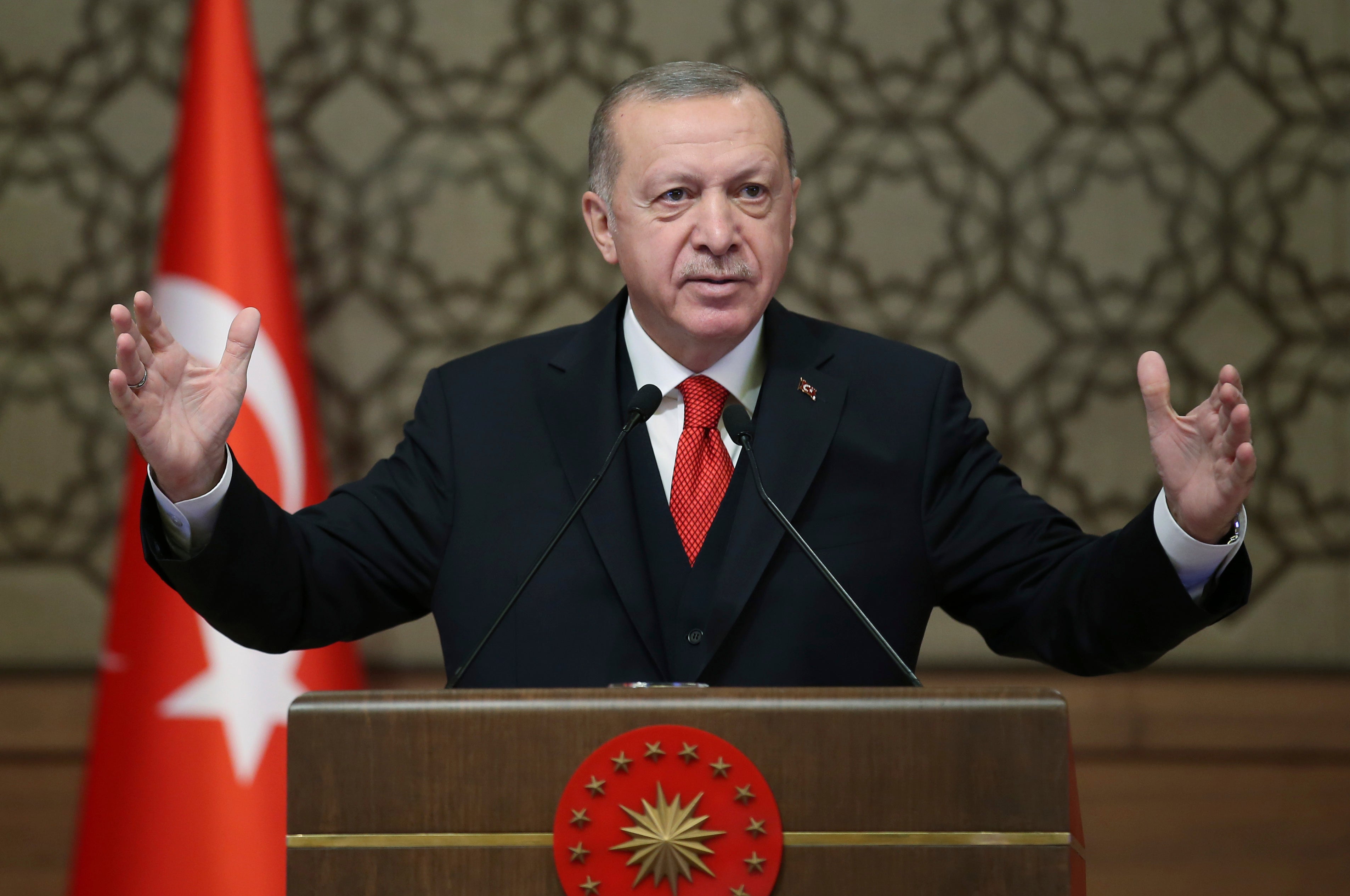Turkey president says Armenia’s ‘occupation’ in disputed Nagorno-Karabakh is ending
Thousands of Armenians demand their PM’s resignation over ceasefire

Your support helps us to tell the story
From reproductive rights to climate change to Big Tech, The Independent is on the ground when the story is developing. Whether it's investigating the financials of Elon Musk's pro-Trump PAC or producing our latest documentary, 'The A Word', which shines a light on the American women fighting for reproductive rights, we know how important it is to parse out the facts from the messaging.
At such a critical moment in US history, we need reporters on the ground. Your donation allows us to keep sending journalists to speak to both sides of the story.
The Independent is trusted by Americans across the entire political spectrum. And unlike many other quality news outlets, we choose not to lock Americans out of our reporting and analysis with paywalls. We believe quality journalism should be available to everyone, paid for by those who can afford it.
Your support makes all the difference.Turkish president Recep Tayyip Erdogan has said that Armenia’s 28-year rule over Nagorno Karabakh is ending, following a ceasefire in the disputed territory on Tuesday.
Mr Erdogan made the comments during a speech to Turkey’s parliament on Wednesday, the day after Russian peacekeepers were sent to the enclave after the conclusion of a six-week war between Armenian and Azeri forces.
Fierce fighting broke between the two countries at the end of September over Nagorno Karabakh, with Turkey providing military assistance to Azerbaijan.
In the intervening weeks, Azeri troops reclaimed swathes of the region - including the prized city of Shusha - that it had lost to Armenia in a war almost three decades ago.
Now that hostilities between Yerevan and Baku have ceased, Turkey and Russia will jointly monitor the ceasefire in the territory, according to Mr Erdogan.
The Turkish president’s words about the end of Armenia’s “occupation” on Wednesday echoed those made by his foreign minister Mevlut Cavusoglu at a press conference the previous day.
Mr Cavusoglu hailed the ceasefire deal as a “great success and victory for Azerbaijan”, adding that that lands “under occupation for 30 years are being liberated”.
Ilham Aliyev, the president of Azerbaijan, marked the occasion by tweeting that the signing of the deal was “a historic day”.
“An end is being put to the Armenia-Azerbaijan Nagorno-Karabakh conflict. For our people, these days are the happiest ones. And I am also happy to deliver this pleasant news to my people," he added.
While Azeris celebrated, thousands of people in Armenia on Wednesday demanded the resignation of their prime minister Nikol Pashinyan, who came to power in 2018 in a popular uprising. Some of them, including a leading opposition figure, were arrested.
This comes the day after some Armenian protesters stormed the county’s parliament to protest against the ceasefire deal.
Earlier this week, Mr Pashinyan wrote on Facebook that the decision to sign the agreement was “hard” and “painful” but was based on military considerations and expert advice.
On Tuesday, he admitted that the result of the conflict was a “big failure and disaster” for his country.
Although an exact death toll is not known, Russia estimated in October that almost 5,000 people had died as a result of fighting over Nagorno Karabakh, including nearly 150 civilians on both sides.
While Azerbaijan has not released casualty figures, Armenia has said that more than 1,220 of its military personnel have been killed.
Before the most recently fighting, Nagorno Karabakh, which is internationally recognised as part of Azerbaijan, was fully controlled by ethnic Armenians.
As part of the ceasefire, Azerbaijan will keep the territory it gained, while Armenia while have to cede control of some other areas by 1 December.
Almost 2,000 servicemen will be deployed to Nagorno Karabakh for peacekeeping operations, Russia’s defence ministry said.
Agencies have contributed to this report.



Join our commenting forum
Join thought-provoking conversations, follow other Independent readers and see their replies
Comments